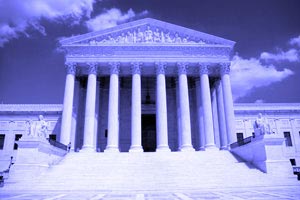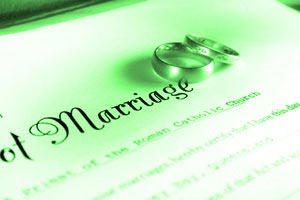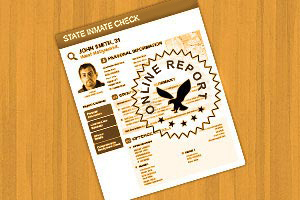Nevada Public Records
The Nevada State Records mission is to provide every person the means to find, obtain, preview and examine public records, thus enabling the residents of Nevada to preserve the knowledge about state and local government activities and the conduct of the people within.
The main purpose for giving access to this information is to offer citizens and any other interested individual the ability to research and request information discreetly and in accordance with Nevada Public Records Law, which states that government-generated records must be available to the public.
In order to access, preview, and examine these records, interested citizens do not have to specify their reason for wanting a record. The exception is if the requested record has been made confidential.
Are Nevada Records Public?
Nevada Records are open to the public. The Nevada Public Records Act preserves the public's right to make a request to any agency that either generated or received the record. It also defines official state records to include papers, unpublished books, maps, photographs, machine-readable materials, video and audio files, and materials stored electronically. The custodian of the records may also provide electronic copies of the records if an electronic copy was received initially or already exists. However, not all state records are public records. Record custodians may deny any request to obtain any record that contains protected information.
What is Considered Public Information in Nevada?
Nevada public records include:
- Nevada court records
- Nevada arrest records
- Nevada bankruptcy records
- Nevada sex offender information which is available to the public
- Records of inmates
- Criminal records
A Nevada public data search can be made through the state custodian of a particular record or through third-party websites that offer public data search services. To request a public data search through state custodians, record seekers can submit a public records act request to the record custodian. This may be done by completing a record request form that the custodian usually provides and submitting required documentation and fees.
How Do I Find Public Records in Nevada?
Any person interested in inspecting or copying Nevada public records can do so by making a request for the record with the custodian of the records. Pursuant to the Nevada Public Records Act, the record should be made available when a request is made to inspect or copy the record. Any request to inspect the record should be in writing, should be concise, and should clearly describe the record the requester wishes to obtain. If the request is handwritten, the writing should be legible. Requesters can also provide unique information about the record that would help the custodian of the record find the record more easily. The Office of the Secretary of State provides a request form which can be used by any person to make a request. Requests for these records can be made by email or mail. The Office may also contact the requester if more information is required to find the record. Applications can be made at:
Public Information Officer
Nevada Secretary of State
101 North Carson Street, Suite 3
Carson City, NV 89701
Email: sospio@sos.nv.gov
As stated earlier, there are limitations on who can obtain certified vital records in Nevada. However, informational copies of vital records can be obtained and reviewed by the general public. To obtain Nevada birth and death vital records, record seekers can contact the Nevada Department of Health to set an appointment date. On the other hand, marriage and divorce records are held at the county level. The Recorder in the county where the marriage license was issued is the appropriate place to go for marriage records. Meanwhile, to access divorce records, contact the County Clerk in the county where the divorce was granted.
Some public records may also be accessible from third-party websites. These websites are not limited by geographic location and come with expansive search tools. Record seekers can use these sites to start a search for a specific record or multiple records. To use a search engine on a third-party or government website, interested parties usually must provide:
- The name of the person involved in the record, unless said person is a juvenile
- The location or assumed location of the document or person involved
Third-party sites are independent of government sources and are not sponsored by these government agencies. Because of this, record availability on third-party websites may vary.
How to Use Third-Party Sites to Find Public Records Nevada
City Records
Public city records may also be accessible from third-party websites. These non-government platforms come with intuitive tools that allow for expansive searches. Record seekers may either opt to use these tools to search for a specific record or multiple records. However, users will need to provide enough information to assist with the search such as:
- The name of the subject involved in the record (subject must be older than 18 or not juvenile)
- The address of the requestor
- A case number or file number (if known)
- The location of the document or person involved
- The last known or current address of the registrant
Third-party sites are not sponsored by government agencies. Because of this, record availability and results may vary.
Public Records
Public records can also be accessed from third-party websites. These third-party public records aggregate websites offer search services that are non-geographically limited, making the search result expansive and typically straightforward. However, users will need to provide enough information to assist with the search, such as:
- The name of the subject involved in the record as long as the subject is not a juvenile
- The last known or location of the record subject
Third-party public records search websites are not government-sponsored services. Therefore, the availability and accuracy of results can vary.
How Do I Look Up Public Records in Nevada for Free?
Interested persons can look up public records in Nevada for free. However, not all records can be obtained for free. The cost of access largely depends on the particular record, the format the requester wishes to obtain, the custodian of the records, and how the requester chooses to make the record. That said, most agencies rarely charge a fee for merely inspecting a record physically at the location the record is maintained. Interested persons can get access to inspect Nevada court records at no cost. However, not all records can be inspected upon request. Some records have to be compiled or extracted, while some others need to have their confidential aspects redacted. Records that may be inspected by any person physically, at no cost, include court records, arrest records, sex offender information, and incident reports. Government entities that allow free inspection of records provide terminals or lobbies for individuals making requests to stay while their requests are being processed. Access to the records is usually during business hours. Additionally, the electronic versions of some records are available online, with some of them being free to access. Such records that can be accessed online include sex offender information and inmate rosters.
Free public records searches may also be performed through respective Nevada county clerk and county recorder offices. Some examples of these records include proof of marriage record, foreclosure records, and liens. To perform public record searches through a county recorder’s or clerk’s office, interested persons can visit the physical location of the office. Alternatively, some county recorders and clerks provide online record search portals on their websites record seekers can use to find public records. For instance, the Clark county clerk’s office maintains a marriage record search portal that can be used to find, review, and order marriage records they maintain. Clark county recorder’s office also maintains an online search portal record seekers can use to inspect and review public records in their custody.








